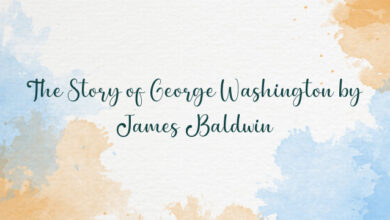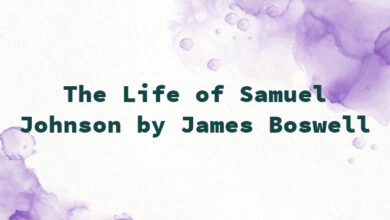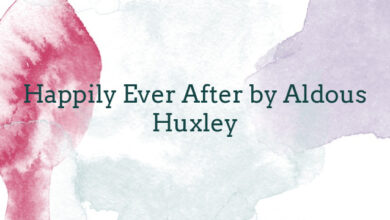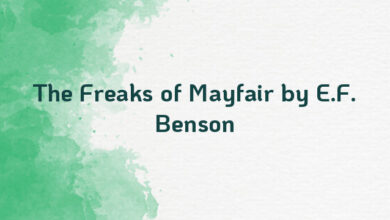
The Autobiography of Benjamin Franklin by Benjamin Franklin
IV
What follows was written in the last year of Dr. Franklin’s life, 1790:
As soon as I was settled in a lodging Mr. Charles had provided for me, I went to visit Dr. Fothergill, to whom I was strongly recommended, and whose counsel respecting my proceedings I was advis’d to obtain. He was against an immediate complaint to government, and thought the proprietaries should first be personally appli’d to, who might possibly be induc’d by the interposition and persuasion of some private friends, to accommodate matters amicably. I then waited on my old friend and correspondent, Mr. Peter Collinson, who told me that John Hanbury, the great Virginia merchant, had requested to be informed when I should arrive, that he might carry me to Lord Granville’s, who was then President of the Council and wished to see me as soon as possible. I agreed to go with him the next morning. Accordingly Mr. Hanbury called for me and took me in his carriage to that nobleman’s, who receiv’d me with great civility; and after some questions respecting the present state of affairs in America and discourse thereupon, he said to me: “You Americans have wrong ideas of the nature of your constitution; you contend that the king’s instructions to his governors are not laws, and think yourselves at liberty to regard or disregard them at your own discretion. But those instructions are not like the pocket instructions given to a minister going abroad, for regulating his conduct in some trifling point of ceremony. They are first drawn up by judges learned in the laws; they are then considered, debated, and perhaps amended in Council, after which they are signed by the king. They are then, so far as they relate to you, the law of the land, for the king is the Legislator of the Colonies.” I told his lordship this was new doctrine to me. I had always understood from our charters that our laws were to be made by our Assemblies, to be presented indeed to the king for his royal assent, but that being once given the king could not repeal or alter them. And as the Assemblies could not make permanent laws without his assent, so neither could he make a law for them without theirs. He assur’d me I was totally mistaken. I did not think so, however, and his lordship’s conversation having a little alarm’d me as to what might be the sentiments of the court concerning us, I wrote it down as soon as I return’d to my lodgings. I recollected that about 20 years before, a clause in a bill brought into Parliament by the ministry had propos’d to make the king’s instructions laws in the colonies, but the clause was thrown out by the Commons, for which we adored them as our friends and friends of liberty, till by their conduct towards us in 1765 it seem’d that they had refus’d that point of sovereignty to the king only that they might reserve it for themselves.
After some days, Dr. Fothergill having spoken to the proprietaries, they agreed to a meeting with me at Mr. T. Penn’s house in Spring Garden. The conversation at first consisted of mutual declarations of disposition to reasonable accommodations, but I suppose each party had its own ideas of what should be meant by reasonable. We then went into consideration of our several points of complaint, which I enumerated. The proprietaries justify’d their conduct as well as they could, and I the Assembly’s. We now appeared very wide, and so far from each other in our opinions as to discourage all hope of agreement. However, it was concluded that I should give them the heads of our complaints in writing, and they promis’d then to consider them. I did so soon after, but they put the paper into the hands of their solicitor, Ferdinand John Paris, who managed for them all their law business in their great suit with the neighbouring proprietary of Maryland, Lord Baltimore, which had subsisted 70 years, and wrote for them all their papers and messages in their dispute with the Assembly. He was a proud, angry man, and as I had occasionally in the answers of the Assembly treated his papers with some severity, they being really weak in point of argument and haughty in expression, he had conceived a mortal enmity to me, which discovering itself whenever we met, I declin’d the proprietary’s proposal that he and I should discuss the heads of complaint between our two selves, and refus’d treating with any one but them. They then by his advice put the paper into the hands of the Attorney and Solicitor-General for their opinion and counsel upon it, where it lay unanswered a year wanting eight days, during which time I made frequent demands of an answer from the proprietaries, but without obtaining any other than that they had not yet received the opinion of the Attorney and Solicitor-General. What it was when they did receive it I never learnt, for they did not communicate it to me, but sent a long message to the Assembly drawn and signed by Paris, reciting my paper, complaining of its want of formality, as a rudeness on my part, and giving a flimsy justification of their conduct, adding that they should be willing to accommodate matters if the Assembly would send out some person of candour to treat with them for that purpose, intimating thereby that I was not such.
The want of formality or rudeness was, probably, my not having address’d the paper to them with their assum’d titles of True and Absolute Proprietaries of the Province of Pennsylvania, which I omitted as not thinking it necessary in a paper, the intention of which was only to reduce to a certainty by writing, what in conversation I had delivered viva voce.
But during this delay, the Assembly having prevailed with Gov’r Denny to pass an act taxing the proprietary estate in common with the estates of the people, which was the grand point in dispute, they omitted answering the message.
When this act however came over, the proprietaries, counselled by Paris, determined to oppose its receiving the royal assent. Accordingly they petition’d the king in Council, and a hearing was appointed in which two lawyers were employ’d by them against the act, and two by me in support of it. They alledg’d that the act was intended to load the proprietary estate in order to spare those of the people, and that if it were suffer’d to continue in force, and the proprietaries who were in odium with the people, left to their mercy in proportioning the taxes, they would inevitably be ruined. We reply’d that the act had no such intention, and would have no such effect. That the assessors were honest and discreet men under an oath to assess fairly and equitably, and that any advantage each of them might expect in lessening his own tax by augmenting that of the proprietaries was too trifling to induce them to perjure themselves. This is the purport of what I remember as urged by both sides, except that we insisted strongly on the mischievous consequences that must attend a repeal, for that the money, £100,000, being printed and given to the king’s use, expended in his service, and now spread among the people, the repeal would strike it dead in their hands to the ruin of many, and the total discouragement of future grants, and the selfishness of the proprietors in soliciting such a general catastrophe, merely from a groundless fear of their estate being taxed too highly, was insisted on in the strongest terms. On this, Lord Mansfield, one of the counsel rose, and beckoning me took me into the clerk’s chamber, while the lawyers were pleading, and asked me if I was really of opinion that no injury would be done the proprietary estate in the execution of the act. I said certainly. “Then,” says he, “you can have little objection to enter into an engagement to assure that point.” I answer’d, “None at all.” He then call’d in Paris, and after some discourse, his lordship’s proposition was accepted on both sides; a paper to the purpose was drawn up by the Clerk of the Council, which I sign’d with Mr. Charles, who was also an Agent of the Province for their ordinary affairs, when Lord Mansfield returned to the Council Chamber, where finally the law was allowed to pass. Some changes were however recommended and we also engaged they should be made by a subsequent law, but the Assembly did not think them necessary; for one year’s tax having been levied by the act before the order of Council arrived, they appointed a committee to examine the proceedings of the assessors, and on this committee they put several particular friends of the proprietaries. After a full enquiry, they unanimously sign’d a report that they found the tax had been assess’d with perfect equity.
The Assembly looked into my entering into the first part of the engagement, as an essential service to the Province, since it secured the credit of the paper money then spread over all the country. They gave me their thanks in form when I return’d. But the proprietaries were enraged at Governor Denny for having pass’d the act, and turn’d him out with threats of suing him for breach of instructions which he had given bond to observe. He, however, having done it at the instance of the General, and for His Majesty’s service, and having some powerful interests at court, despis’d the threats and they were never put in execution.… [Unfinished].
Chief Events in Franklin’s Life
[Ending, as it does, with the year 1757, the autobiography leaves important facts unrecorded. It has seemed advisable, therefore, to detail the chief events in Franklin’s life, from the beginning, in the following list]:
1706: He is born, in Boston, and baptized in the Old South Church.
1714: At the age of eight, enters the Grammar School.
1716: Becomes his father’s assistant in the tallow-chandlery business.
1718: Apprenticed to his brother James, printer.
1721: Writes ballads and peddles them, in printed form, in the streets; contributes, anonymously, to the “New England Courant,” and temporarily edits that paper; becomes a free-thinker, and a vegetarian.
1723: Breaks his indenture and removes to Philadelphia; obtains employment in Keimer’s printing-office; abandons vegetarianism.
1724: Is persuaded by Governor Keith to establish himself independently, and goes to London to buy type; works at his trade there, and publishes “Dissertation on Liberty and Necessity, Pleasure and Pain.”
1726: Returns to Philadelphia; after serving as clerk in a dry-goods store, becomes manager of Keimer’s printing-house.
1727: Founds the Junto, or “Leathern Apron” Club.
1728: With Hugh Meredith, opens a printing-office.
1729: Becomes proprietor and editor of the “Pennsylvania Gazette”; prints, anonymously, “Nature and Necessity of a Paper Currency”; opens a stationer’s shop.
1730: Marries Rebecca Read.
1731: Founds the Philadelphia Library.
1732: Publishes the first number of “Poor Richard’s Almanac” under the pseudonym of “Richard Saunders.” The Almanac, which continued for twenty-five years to contain his witty, worldly-wise sayings, played a very large part in bringing together and molding the American character which was at that time made up of so many diverse and scattered types.
1733: Begins to study French, Italian, Spanish, and Latin.
1736: Chosen clerk of the General Assembly; forms the Union Fire Company of Philadelphia.
1737: Elected to the Assembly; appointed Deputy Postmaster-General; plans a city police.
1742: Invents the open, or “Franklin,” stove.
1743: Proposes a plan for an Academy, which is adopted 1749 and develops into the University of Pennsylvania.
1744: Establishes the American Philosophical Society.
1746: Publishes a pamphlet, “Plain Truth,” on the necessity for disciplined defense, and forms a military company; begins electrical experiments.
1748: Sells out his printing business; is appointed on the Commission of the Peace, chosen to the Common Council, and to the Assembly.
1749: Appointed a Commissioner to trade with the Indians.
1751: Aids in founding a hospital.
1752: Experiments with a kite and discovers that lightning is an electrical discharge.
1753: Awarded the Copley medal for this discovery, and elected a member of the Royal Society; receives the degree of M.A. from Yale and Harvard. Appointed joint Postmaster-General.
1754: Appointed one of the Commissioners from Pennsylvania to the Colonial Congress at Albany; proposes a plan for the union of the colonies.
1755: Pledges his personal property in order that supplies may be raised for Braddock’s army; obtains a grant from the Assembly in aid of the Crown Point expedition; carries through a bill establishing a voluntary militia; is appointed Colonel, and takes the field.
1757: Introduces a bill in the Assembly for paving the streets of Philadelphia; publishes his famous “Way to Wealth”; goes to England to plead the cause of the Assembly against the Proprietaries; remains as agent for Pennsylvania; enjoys the friendship of the scientific and literary men of the kingdom.
[HERE THE AUTOBIOGRAPHY BREAKS OFF]
1760: Secures from the Privy Council, by a compromise, a decision obliging the Proprietary estates to contribute to the public revenue.
1762: Receives the degree of LL.D. from Oxford and Edinburgh; returns to America.
1763: Makes a five months’ tour of the northern colonies for the purpose of inspecting the post-offices.
1764: Defeated by the Penn faction for reelection to the Assembly; sent to England as agent for Pennsylvania.
1765: Endeavors to prevent the passage of the Stamp Act.
1766: Examined before the House of Commons relative to the passage of the Stamp Act; appointed agent of Massachusetts, New Jersey, and Georgia; visits Göttingen University.
1767: Travels in France and is presented at court.
1769: Procures a telescope for Harvard College.
1772: Elected Associé Etranger of the French Academy.
1774: Dismissed from the office of Postmaster-General; influences Thomas Paine to emigrate to America.
1775: Returns to America; chosen a delegate to the Second Continental Congress; placed on the committee of secret correspondence; appointed one of the commissioners to secure the cooperation of Canada.
1776: Placed on the committee to draft a Declaration of Independence; chosen president of the Constitutional Committee of Pennsylvania; sent to France as agent of the colonies.
1778: Concludes treaties of defensive alliance, and of amity and commerce; is received at court.
1779: Appointed Minister Plenipotentiary to France.
1780: Appoints Paul Jones commander of the “Alliance.”
1782: Signs the preliminary articles of peace.
1783: Signs the definite treaty of peace.
1785: Returns to America; is chosen President of Pennsylvania; reelected 1786.
1787: Reelected President; sent as delegate to the convention for framing a Federal Constitution.
1788: Retires from public life.
1790: April 17, dies. His grave is in the churchyard at Fifth and Arch Streets, Philadelphia.




